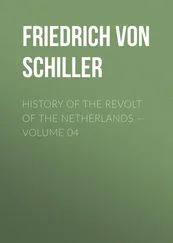John Draper - History of the Intellectual Development of Europe, Volume II (of 2)
Здесь есть возможность читать онлайн «John Draper - History of the Intellectual Development of Europe, Volume II (of 2)» — ознакомительный отрывок электронной книги совершенно бесплатно, а после прочтения отрывка купить полную версию. В некоторых случаях можно слушать аудио, скачать через торрент в формате fb2 и присутствует краткое содержание. Жанр: foreign_antique, foreign_prose, на английском языке. Описание произведения, (предисловие) а так же отзывы посетителей доступны на портале библиотеки ЛибКат.
- Название:History of the Intellectual Development of Europe, Volume II (of 2)
- Автор:
- Жанр:
- Год:неизвестен
- ISBN:нет данных
- Рейтинг книги:4 / 5. Голосов: 1
-
Избранное:Добавить в избранное
- Отзывы:
-
Ваша оценка:
- 80
- 1
- 2
- 3
- 4
- 5
History of the Intellectual Development of Europe, Volume II (of 2): краткое содержание, описание и аннотация
Предлагаем к чтению аннотацию, описание, краткое содержание или предисловие (зависит от того, что написал сам автор книги «History of the Intellectual Development of Europe, Volume II (of 2)»). Если вы не нашли необходимую информацию о книге — напишите в комментариях, мы постараемся отыскать её.
History of the Intellectual Development of Europe, Volume II (of 2) — читать онлайн ознакомительный отрывок
Ниже представлен текст книги, разбитый по страницам. Система сохранения места последней прочитанной страницы, позволяет с удобством читать онлайн бесплатно книгу «History of the Intellectual Development of Europe, Volume II (of 2)», без необходимости каждый раз заново искать на чём Вы остановились. Поставьте закладку, и сможете в любой момент перейти на страницу, на которой закончили чтение.
Интервал:
Закладка:
The court of Abderrahman III.Such were the palace and gardens of Zehra, in which Abderrahman III. honoured his favourite sultana. The edifice had 1200 columns of Greek, Italian, Spanish, and African marble. Its hall of audience was incrusted with gold and pearls. Through the long corridors of its seraglio black eunuchs silently glided. The ladies of the harem, both wives and concubines, were the most beautiful that could be found. To that establishment alone 6300 persons were attached, The body-guard of the sovereign was composed of 12,000 horsemen, whose cimeters and belts were studded with gold. This was that Abderrahman who, after a glorious reign of fifty years, sat down to count the number of days of unalloyed happiness he had experienced, and could only enumerate fourteen. "Oh man!" exclaimed the plaintive khalif, "put not thy trust in this present world."
Social habits of the Moors.No nation has ever excelled the Spanish Arabs in the beauty and costliness of their pleasure-gardens. To them we owe the introduction of very many of our most valuable cultivated fruits, such as the peach. Retaining the love of their ancestors for the cooling effect of water in a hot climate, they spared no pains in the superfluity of fountains, hydraulic works, and artificial lakes in which fish were raised for the table. Into such a lake, attached to the palace of Cordova, many loaves were cast each day to feed the fish. There were also menageries of foreign animals; aviaries of rare birds; manufactories in which skilled workmen, obtained from foreign countries, displayed their art in textures of silk, cotton, linen, and all the miracles of the loom; in jewelry and filigree-work, with which they ministered to the female pride of the sultanas and concubines. Under the shade of cypresses cascades disappeared; among flowering shrubs there were winding walks, bowers of roses, seats cut out of the rock, and crypt-like grottoes hewn in the living stone. Nowhere was ornamental gardening better understood; for not only did the artist try to please the eye as it wandered over the pleasant gradation of vegetable colour and form – he also boasted his success in the gratification of the sense of smell by the studied succession of perfumes from beds of flowers.
Their domestic life.To these Saracens we are indebted for many of our personal comforts. Religiously cleanly, it was not possible for them to clothe themselves according to the fashion of the natives of Europe, in a garment unchanged till it dropped to pieces of itself, a loathsome mass of vermin, stench, and rags. No Arab who had been a minister of state, or the associate or antagonist of a sovereign, would have offered such a spectacle as the corpse of Thomas à Becket when his haircloth shirt was removed. They taught us the use of the often-changed and often-washed under-garment of linen or cotton, which still passes among ladies under its old Arabic name. But to cleanliness they were not unwilling to add ornament. Especially among women of the higher classes was the love of finery a passion. Their outer garments were often of silk, embroidered and decorated with gems and woven gold. So fond were the Moorish women of gay colours and the lustre of chrysolites, hyacinths, emeralds, and sapphires, that it was quaintly said that the interior of any public building in which they were permitted to appear looked like a flower-meadow in the spring besprinkled with rain.
They cultivate literature, music,In the midst of all this luxury, which cannot be regarded by the historian with disdain, since in the end it produced a most important result in the south of France, the Spanish khalifs, emulating the example of their Asiatic compeers, and in this strongly contrasting with the popes of Rome, were not only the patrons, but the personal cultivators of all the branches of human learning. One of them was himself the author of a work on polite literature in not less than fifty volumes; another wrote a treatise on algebra. When Zaryab the musician came from the East to Spain, the Khalif Abderrahman rode forth to meet him in honour. The College of Music in Cordova was sustained by ample government patronage, and produced many illustrious professors.
but disapprove of European mythology.The Arabs never translated into their own tongue the great Greek poets, though they so sedulously collected and translated the Greek philosophers. Their religious sentiments and sedate character caused them to abominate the lewdness of our classical mythology, and to denounce indignantly any connexion between the licentious, impure Olympian Jove and the Most High God as an insufferable and unpardonable blasphemy. Haroun al Raschid had gratified his curiosity by causing Homer to be translated into Syriac, but he did not adventure on rendering the great epics into Arabic. Notwithstanding this aversion to our graceful but not unobjectionable ancient poetry, among them originated the Tensons, or poetic disputations, carried afterward to perfection among the Troubadours; from them, also, the Provençals learned to employ jongleurs. Across the Pyrenees, literary, philosophical, and military adventurers were perpetually passing; and thus the luxury, the taste, and above all, the chivalrous gallantry and elegant courtesies of Moorish society found their way from Granada and Cordova to Provence and Languedoc. The south of France contracts their tastes.The French, and German, and English nobles imbibed the Arab admiration of the horse; they learned to pride themselves on skilful riding. Hunting and falconry became their fashionable pastimes; they tried to emulate that Arab skill which had produced the celebrated breed of Andalusian horses. It was a scene of grandeur and gallantry; the pastimes were tilts and tournaments. The refined society of Cordova prided itself in its politeness. A gay contagion spread from the beautiful Moorish miscreants to their sisters beyond the mountains; the south of France was full of the witcheries of female fascinations, and of dancing to the lute and mandolin. Light literature spreads into Sicily and Italy.Even in Italy and Sicily the love-song became the favourite composition; and out of these genial but not orthodox beginnings the polite literature of modern Europe arose. The pleasant epidemic spread by degrees along every hillside and valley. In monasteries, voices that had vowed celibacy might be heard carolling stanzas of which St. Jerome would hardly have approved; there was many a juicy abbot, who could troll forth in jocund strains, like those of the merry sinners of Malaga and Xeres, the charms of women and wine, though one was forbidden to the Moslem and one to the monk. The sedate greybeards of Cordova had already applied to the supreme judge to have the songs of the Spanish Jew, Abraham Ibn Sahal, prohibited; for there was not a youth, nor woman, nor child in the city who could not repeat them by heart. Their immoral tendency was a public scandal. The light gaiety of Spain was reflected in the coarser habits of the northern countries. It was an archdeacon of Oxford who some time afterward sang,
"Mihi sit propositum in tabernâ mori,
Vinum sit appositum morientis ori,
Ut dicant, cum venerint angelorum chori;
'Deus sit propitius huic potatori,'" etc.
Even as early as the tenth century, persons having a taste for learning and for elegant amenities found their way into Spain from all adjoining countries; a practice in subsequent years still more indulged in, when it became illustrated by the brilliant success of Gerbert, who, as we have seen, passed from the Infidel University of Cordova to the papacy of Rome.
The Arabian school system.The khalifs of the West carried out the precepts of Ali, the fourth successor of Mohammed, in the patronage of literature. They established libraries in all their chief towns; it is said that not fewer than seventy were in existence. To every mosque was attached a public school, in which the children of the poor were taught to read and write, and instructed in the precepts of the Koran. For those in easier circumstances there were academies, usually arranged in twenty-five or thirty apartments, each calculated for accommodating four students; the academy being presided over by a rector. In Cordova, Granada, and other great cities, there were universities frequently under the superintendence of Jews; the Mohammedan maxim being that the real learning of a man is of more public importance than any particular religious opinions he may entertain. In this they followed the example of the Asiatic khalif, Haroun al Raschid, who actually conferred the superintendence of his schools on John Masué, a Nestorian Christian. The Mohammedan liberality was in striking contrast with the intolerance of Europe. Indeed, it may be doubted whether at this time any European nation is sufficiently advanced to follow such an example. In the universities some of the professors of polite literature gave lectures on Arabic classical works; others taught rhetoric or composition, or mathematics, or astronomy. From these institutions many of the practices observed in our colleges were derived. They held Commencements, at which poems were read and orations delivered in presence of the public. They had also, in addition to these schools of general learning, professional ones, particularly for medicine.
Читать дальшеИнтервал:
Закладка:
Похожие книги на «History of the Intellectual Development of Europe, Volume II (of 2)»
Представляем Вашему вниманию похожие книги на «History of the Intellectual Development of Europe, Volume II (of 2)» списком для выбора. Мы отобрали схожую по названию и смыслу литературу в надежде предоставить читателям больше вариантов отыскать новые, интересные, ещё непрочитанные произведения.
Обсуждение, отзывы о книге «History of the Intellectual Development of Europe, Volume II (of 2)» и просто собственные мнения читателей. Оставьте ваши комментарии, напишите, что Вы думаете о произведении, его смысле или главных героях. Укажите что конкретно понравилось, а что нет, и почему Вы так считаете.












